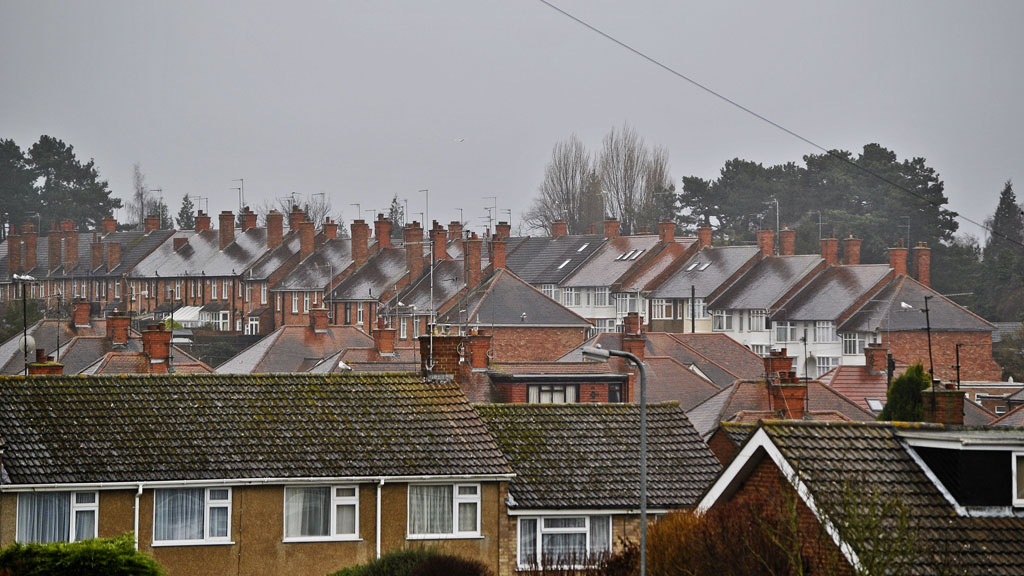Bedroom tax ‘unlawful’ appeal rejected by court
The court of appeal upholds the legality of government cutbacks in the benefits system, as judges reject accusations that the so-called “bedroom tax” unlawfully discriminates against the disabled.

They also rejected claims that the “benefit cap” violates human rights laws and the common law because of its impact on vulnerable families.
Lord Dyson, Master of the Rolls, said the legal challenges were to two “of the government’s most controversial measures” relating to state benefits.
Our thoughts go out to the thousands of disabled tenants who continue to be faced with the risk of eviction. Ugo Hayter
The judge said the court could only intervene if the measures “were manifestly without reasonable foundation”.
He ruled that that stringent test was not satisfied and both challenges must fail.
‘Bedroom tax’
People with disabilities who challenged the “bedroom tax” vowed to continue their battle following the court of appeal ruling.
Ugo Hayter from law firm Leigh Day, representing two people with disabilities who argue that their second bedroom is essential, said: “We are extremely disappointed by this judgment and we are baffled by the findings of the court of appeal.
“The court recognised that our clients and thousands of disabled people across the UK had a need for accommodation not provided for by the new housing benefit rules.
“However, the court decided that disabled tenants should not have their housing needs met on an equivalent basis to their able-bodied counterparts, just because they are disabled.
“Instead disabled tenants are being forced to rely on short-term and discretionary payments.
“We are currently considering whether an appeal to the supreme court is possible. Our thoughts go out to the thousands of disabled tenants who continue to be faced with uncertainty, poverty and the risk of eviction.”
- The bedroom challenge was brought by five disabled tenants and questioned the legality of new regulations, introduced last April, that have led to reductions in housing benefit payments to tenants in social housing assessed through controversial “size criteria” to be under-occupying their accommodation.
- Backed by the Equality and Human Rights Commission, lawyers for the five argued in test cases of national importance that the regulations disproportionately discriminate against the disabled.
- Two lone parents and a child from each family challenged the so-called “benefit cap” after being forced into temporary accommodation in London.
- Campaigners say the welfare cuts are having a particularly harsh impact on women fleeing domestic violence, and on their children, threatening to trap them in abusive relationships.
-
The appeal was against a high court ruling last November that, even though the families were “particularly hard cases”, the capping regulations did not breach human rights laws and were not disproportionate.
‘Most vulnerable’
Anne McMurdie of Public Law Solicitors, whose firm acts for three of the appellants, said: “The government has sought to make savings by targeting the most vulnerable in our society. On the government’s own figures at least 440,000 disabled households will lose out under the new regulations.
“There is compelling and growing evidence of the terrible adverse impact on disabled tenants, having to make the dreadful choice between paying the rent and buying food or heating their homes.
“Disabled tenants are not asking for extra funds – they are asking for housing benefit to be paid at a level which meets their needs – for the same right as others. Discretionary payments are not the answer.”
‘Long-term sustainability’
The Department for Work and Pensions, which was a defendant in both legal actions, welcomed the court’s ruling.
A spokesman said: “We are pleased that the courts have once again found in our favour and agreed our policy is lawful.
“Reform of housing benefit in the social sector is essential to ensure the long-term sustainability of the benefit. But we have ensured extra discretionary housing support is available for vulnerable people.”
Referring to the benefit cap, the spokesman added: “We are pleased that the courts have ruled again that the benefit cap complies with the European convention on human rights.
“The benefit cap sets a fair limit to what people can expect to get from the welfare system – so that claimants cannot receive more than £500 a week, the average household earnings.”